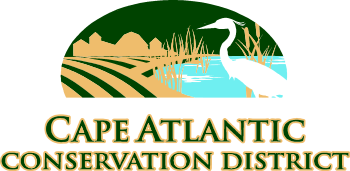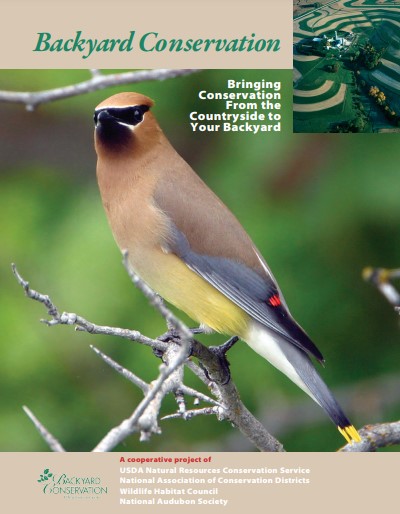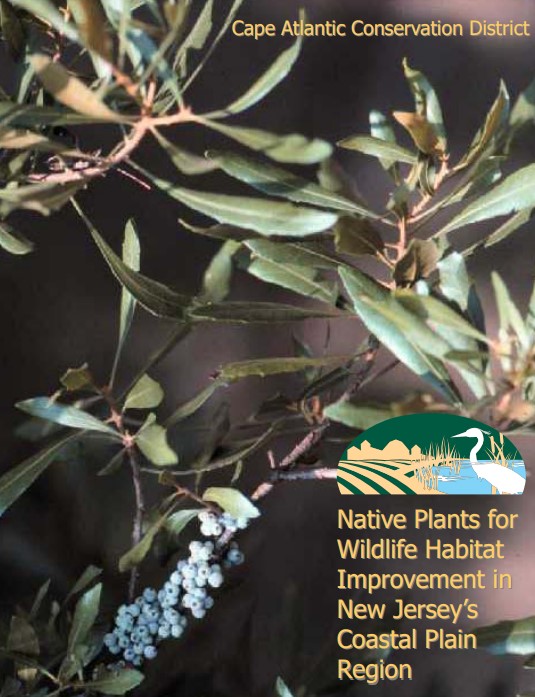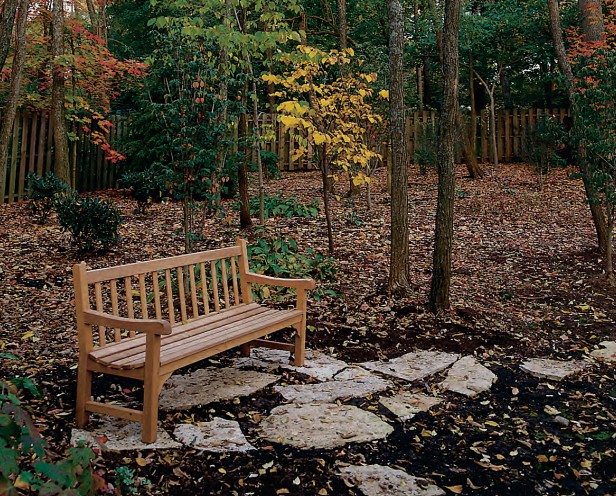
Bringing Conservation Practices Home
Backyard Conservation is a national initiative designed to help homeowners and school administrators to implement effective conservation practices in their own yards. Developed by the National Association of Conservation Districts, USDA Natural Resources Conservation Service, Wildlife Habitat Council, and National Audubon Society, this program adapts tried-and-true farming conservation techniques for residential and school settings.
At the Cape Atlantic Conservation District, we embrace this initiative as part of our commitment to protecting and enhancing natural resources in Atlantic and Cape May Counties. Our efforts aim to make conservation accessible, practical, and impactful for homeowners, schools, and communities.
Why Practice Backyard Conservation?
Backyard conservation offers numerous benefits for both homeowners and the environment:
- Prevent Soil Erosion: Simple measures help stabilize soil, reduce runoff, and keep sediment out of local waterways.
- Attract and Support Wildlife: Native plants provide essential food, shelter, and nesting sites for birds, butterflies, and other wildlife.
- Improve Water Quality: By managing runoff and reducing pollutants, you contribute to healthier streams, rivers, and bays.
- Enhance Your Landscape: Native plants are low-maintenance, pest-resistant, and well-suited to local conditions, creating a beautiful, thriving yard.
Start with the Backyard Conservation Booklet
The Backyard Conservation Booklet is a practical guide that adapts 10 conservation practices traditionally used on farms to help homeowners create environmentally friendly and beautiful backyards. It covers topics such as tree planting, wildlife habitat creation, water conservation, composting, mulching, and backyard ponds. Each practice focuses on enhancing natural resource conservation, supporting local wildlife, and reducing environmental impact while making outdoor spaces more functional and appealing. The booklet emphasizes using native plants, managing soil health, and incorporating sustainable techniques like terracing and natural pest control to balance ecological benefits with personal enjoyment.
The booklet also highlights the benefits of backyard conservation, including improved water quality, reduced soil erosion, and increased biodiversity. With step-by-step instructions, quick tips, and resources for further support, you’ll find accessible way for homeowners to start small and scale up your efforts. This guide empowers individuals to make meaningful environmental contributions from their own backyards.
Conservation Practices for Your Backyard
These ten foundational practices can transform your outdoor spaces into conservation success stories:
- Using Native Plant Species
Native plants are a cornerstone of backyard conservation. These species:- Thrive in local soil and climate conditions.
- Require less water, fertilizer, and pesticides.
- Attract and support local wildlife.
Explore our guide, Native Plants for Wildlife Habitat Improvement in New Jersey’s Coastal Plain Region, for detailed recommendations on trees, shrubs, and herbaceous plants tailored to our area.
- Wildlife Habitat Creation
Designate areas of your yard for wildlife by planting diverse vegetation, installing birdhouses, or creating brush piles. - Composting
Reduce waste and enrich your soil with a backyard composting system. Compost improves soil health and retains moisture. - Water Conservation
Install rain barrels, use drip irrigation, and choose drought-resistant plants to minimize water use.
- Pest Management
Adopt natural pest control methods, such as introducing beneficial insects and avoiding harmful chemicals. - Tree Planting
Trees enhance property value, provide shade, and help manage stormwater. Choose native species for maximum impact. - Terracing
On sloped properties, terracing can reduce runoff and improve soil retention. - Mulching
Mulch conserves soil moisture, prevents erosion, and regulates soil temperature around plants. - Backyard Wetlands and Ponds
Create a small wetland or pond to filter runoff, support wildlife, and add beauty to your yard. - Nutrient Management
Test your soil to determine the right balance of nutrients and avoid over-fertilizing, which can harm local waterways.
Native Plants for Wildlife Habitat Improvement Guide
The Native Plants for Wildlife Habitat Improvement in New Jersey’s Coastal Plain Region offers a detailed resource for homeowners, educators, and land managers to create wildlife-friendly landscapes using native plants. You’ll see the benefits of native plants, including their ability to support wildlife by providing food, shelter, and nesting spaces, while requiring minimal maintenance due to their adaptation to local soil and climate conditions. The guide categorizes plants into trees, shrubs, and herbaceous species, listing their environmental preferences, growth habits, and ecological benefits, making it a practical tool for enhancing biodiversity and improving habitat quality.
Get practical advice on designing wildlife habitats, such as matching plant choices to site-specific conditions like soil moisture, sunlight, and space availability. Find out how planting a variety of native species in layers—combining canopy trees, understory shrubs, and ground-cover plants—can create a rich, diverse habitat that attracts and supports a range of wildlife. Receive a plant list that includes growth characteristics and seasonal features like flowering and fruiting periods, so you can make informed decisions about establishing wildlife habitats that are both functional and visually appealing.
Specialty Focus: Dune Vegetation
For properties near coastal areas, dune vegetation is crucial for stabilizing sand and protecting against storms. Key considerations for selecting dune plants include:
- Adaptability to wind, salt spray, and sandy soils.
- Resistance to pests and disease.
- Drought hardiness after establishment.
- The ability to thrive in harsh conditions.
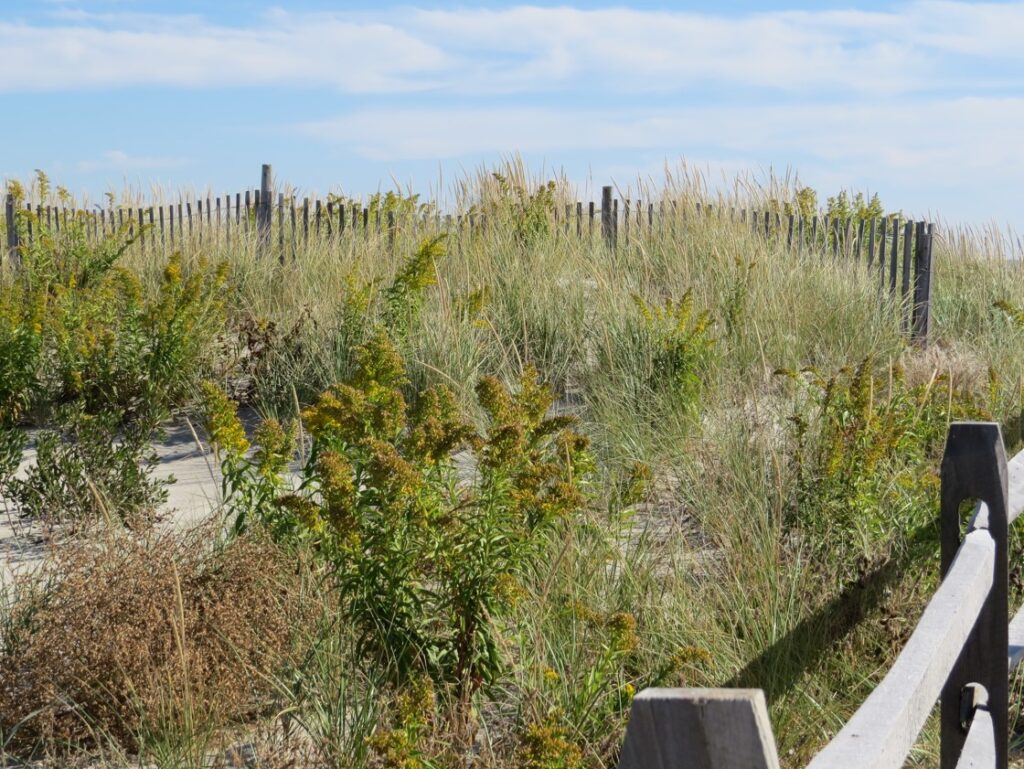
Get Involved with Cape Atlantic Conservation District
We are here to help you bring conservation practices into your backyard. From educational resources to expert guidance, the Cape Atlantic Conservation District is your partner in creating a sustainable, beautiful, and environmentally friendly landscape. Let’s work together to make a lasting impact on our environment!
